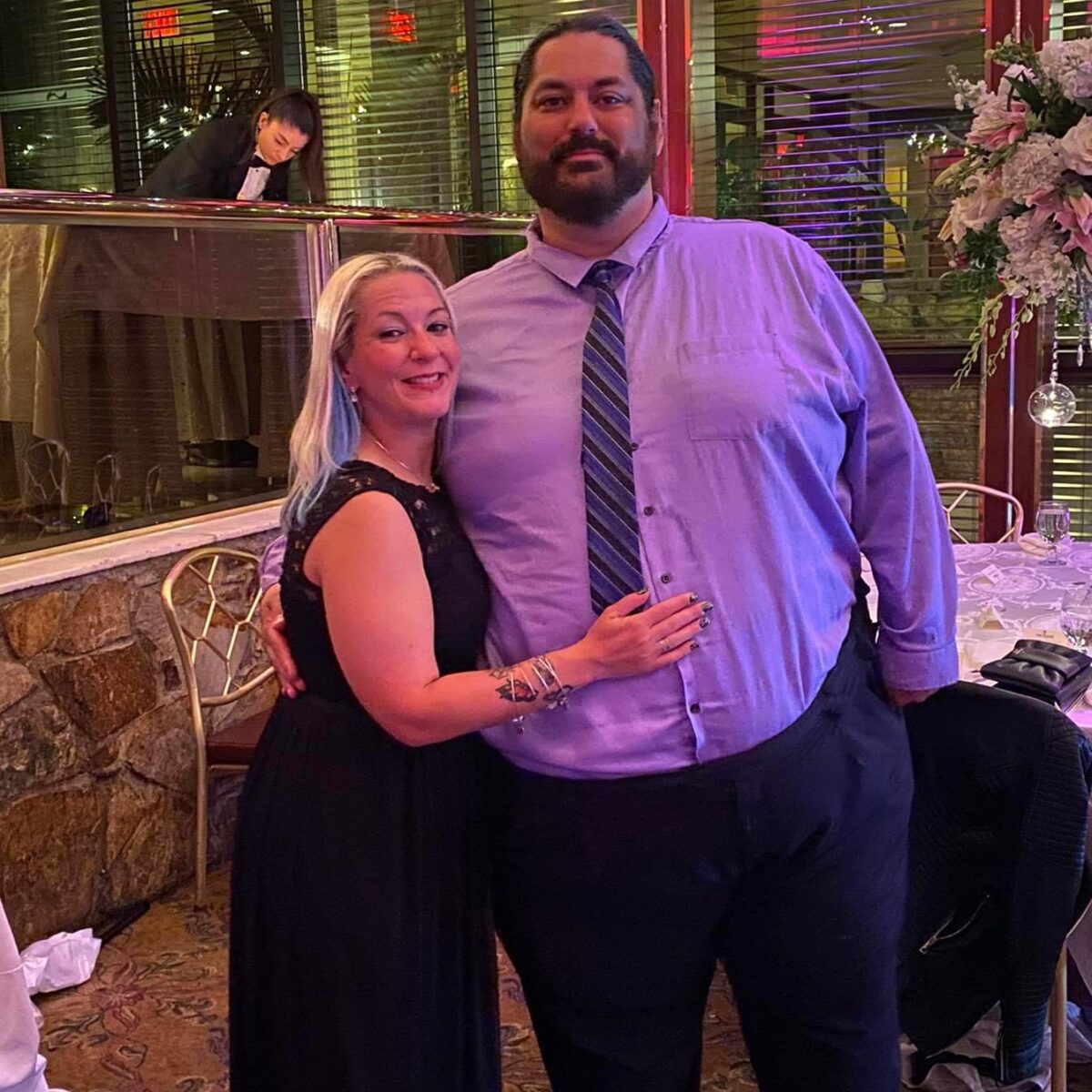Hi! My name is Marie. I’m a wife, auntie, and preschool teacher from New York. I’m also a disabled athlete. I started dancing at age 10 and running at age 24. A few days after running a half marathon in Central Park, I started having some difficulty walking. A little odd, but I thought it would pass. Spoiler alert, it did not pass. In fact, it got worse. Much worse, very quickly.
Just one week after the half marathon, I found myself completely paralyzed from the waist down. My husband drove me to my parents’ house, where my mom tagged in and drove me to a hospital nearby (the one closest to me had already dismissed me as “dehydrated” and “recovering from my little race”). I was almost immediately admitted, the ER doctor called neurology on a hunch, and 36 hours later, I received my diagnosis; Guillain-Barrè Syndrome, or GBS. (Sudden onset, rapidly progressing paralysis that starts in the extremities and moves inward). If left untreated, it can paralyze the diaphragm which, as I’m assuming everyone knows, is kind of important. It took 6 months before I was cleared to return to work, because I insisted, I was ready. What I learned in this process was that I should have taken an additional 6 months, like most other people with GBS.
5 Invisible Symptoms
- Chronic pain.
- Chronic fatigue.
- Brain fog, ranging from, “why did I walk into this room again?” to “why is the toaster out? -pop- scream” to a blank stare and making up words or phrases for anything and everything (“mouth goo” is the latest one…the word in question was “saliva”).
- Numbness and tingling (my favorite game in the winter is “are my feet numb because they’re cold or am I relapsing?”)
- Neuropathy! Who knew that something could be numb and in immense pain…at the same time???
4 Things That Help Manage My Pain
- Rest! It’s been one of the hardest things that I’ve had to teach myself to do, and it’s a constant battle. I’ve learned that sometimes, I have to just say “no,” even if it’s something I really want to do.
- Physical therapy and massage. A good portion of my pain management is therapeutic deep tissue massage. It can be very painful, depending on how frequently I’m able to go at a given time, but it always makes me feel better.
- Keeping active! I know it sounds counterintuitive, but movement helps keep everything working together well. Even if I can only manage a short walk, any type of movement helps.
- MMJ. I know a lot of people may have strong opinions on this matter one way or another, but medical marijuana was an absolute game changer for me. On those days that I’ve barely made it through my workday, or when every step hurts, a little medical marijuana at the end of the day makes such a huge, positive impact on my life.
3 Ways My Life Has Changed
- I’ve had to learn to listen to my body. It took some time, but I know now that I need to rest, whether I like it or not.
- I’m still masking. COVID was very scary for me (as I’m sure it was for all of us “zebras”), especially since there was a link found between COVID and new cases and GBS relapses.
- More thought and planning has to go in to any type of traveling. I love to travel, but my body doesn’t always cooperate. I used to be able to go right back to work the day after a vacation, but now I have to take at least an extra day to recover from the travel itself. The first day of my trip is also always hit or miss.
2 People Who Inspire You and Give You Hope
- Long story, sorry, and it may sound stupid…when I was in the rehabilitation hospital after my initial diagnosis, I had a wonderful roommate. She was loud and a little nosey and a little pushy, and very talkative, and that’s exactly what I needed (initial diagnosis depression was rough). She asked why I was there, we talked, and she got excited that I had GBS because her sister had GBS! While on the phone with her mother later that first night, she asked if she could share my diagnosis. “Sure, whatever,” and she told her mom. A couple days later, a woman who looked very much like her came in with her daughter in tow and asked where my roomie was. “Physical therapy, she should be back in a little bit.” “Oh, ok…by the way, I’m Katie, I’m her sister with Guillain-Barrè Syndrome.” Seeing her walk in on her own, with no mobility aid, while I was sitting there unable to walk, was the first time I had hope that I would be able to run again. That was after my doctor had said I would, but hearing a doctor say it and seeing someone who’s been there are two very different things.
- Also going to sound stupid and sappy, but my husband. When I was first in the hospital (and I’m sure a lot of us can relate), I gave him an out. “This isn’t what you signed up for, so if you want to leave, I won’t hold it against you.” He looked at me like I was crazy and told me that he wasn’t going anywhere because I was still the same person he fell in love with. He proposed 6 months, almost to the day, after my diagnosis. To this day, I tease him that I had to almost die for him to decide he didn’t want to lose me. He gets how my brain works, he supports me, and he knows me, almost better than I know myself. He takes care of me when I don’t (or can’t) take care of myself. He makes sure I rest and take time for myself, and he’s always there. And he never makes me feel guilty for my body and my brain’s shortcomings.
1 Thing You Want People to Know
Cliché, but never judge a book by its cover. Chronic illness is life-changing, and invisible illnesses do exist. Just because I look healthy doesn’t mean that I am. That phrase, “but you don’t look sick” is, in reality, very ableist and not the compliment you think it is. It’s almost like saying, “Well, you don’t fit the disability stereotype, so you must be lying/faking/etc.” My favorite response (which usually stops those people in their tracks) is, “Are you calling me a liar, or are you asking me what concealer I use?” The best thing someone ever said to me while I was recovering was, “You’re starting to look like your old self.” Saying something like that acknowledges that the person is sick, but that they look well in that encounter more true for Zebras. Some days are for kicking butt. Other days are for rest. Listening to your body and mind is what you should be doing. Progress is not linear, and rest is just as important as anything else.
To read all of our previous zebra spotlights, please click here.


